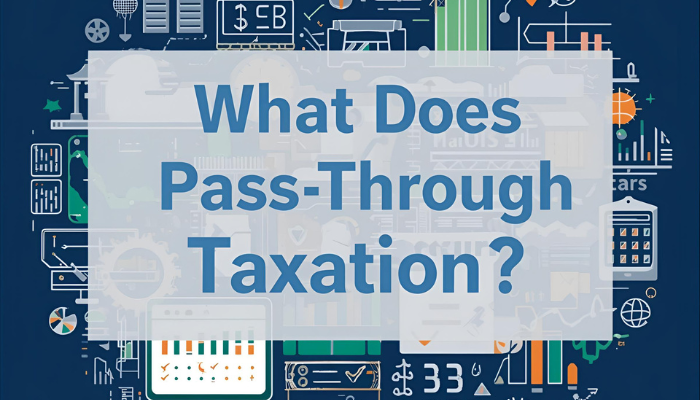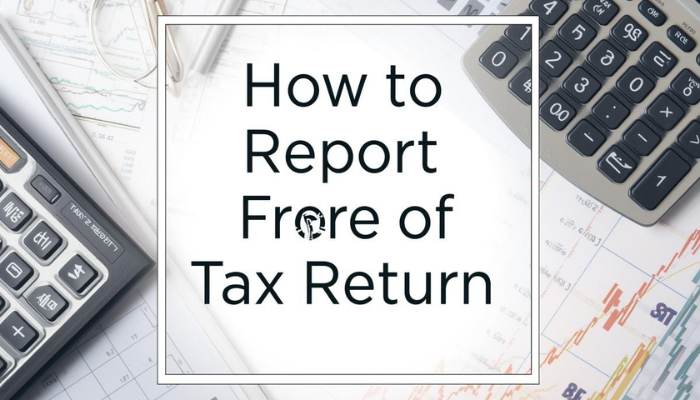
What Does Pass Through Taxation Mean?
Comprehending the concepts of taxation is confusing for lay persons, especially for small business owners or professionals deciding how to structure their operations. One such concept is pass-through taxation.
L&Y Tax Advisors explains what does pass through taxation mean in clear terms. We have also elaborated some examples, benefits so you can decide whether pass-through taxation is a good choice.
Whether you run a partnership, LLC, or sole proprietorship, it is mandatory to have such concepts clarified. Our experts aim to provide authoritative insight into this topic for your benefit.
Pass Taxation Meaning
The term ‘pass taxation’ is a shorthand way of referring to taxation that ‘passes’ through a business entity to its owners instead of being levied at the business level.
The business itself is not taxed on its profits. Instead, profits or losses flow to the owners, who then report them on their personal tax returns.
This concept is also called ‘flow-through taxation’ or ‘pass-through taxation.’
What is Pass Through Taxation?
Pass-through taxation is a tax treatment. It is available to certain business entity types, such as:
- Sole proprietorships
- Partnerships
- S corporations, and
- Many LLCs
Pass-through taxation allows business income (or losses) to be allocated to individual owners who report them on their personal tax returns. Under this system, the entity itself does not pay corporate-level income tax.
Instead, the owners pay tax at their individual income tax rates on their share of the profits or losses.
What Does Pass Through Taxation Mean?
When someone asks ‘What does pass through taxation mean?’, know that it is a process through which business income (or deductions) is transferred from the business to its owners for tax purposes. The business is viewed as a conduit and not a separate taxpayer. In practice, this means:
- The business calculates net profits – after expenses and deductions.
- That net amount is distributed or allocated to owners.
- Owners include that share on their personal tax returns, paying tax at their individual rate.
Losses can decrease their taxable personal income, subject to rules. It also means the business avoids paying tax twice:
- First at an entity level, and
- Again when distributions are made to owners.
Pass-Through Taxation Example
Suppose a three-member LLC makes $300,000 in profit (after expenses). Under pass-through taxation, the LLC itself does not pay income tax. Instead, it distributes (or allocates) shares to the three members – say $100,000 each.
Each member reports $100,000 on their individual return. Also, each member will pay income tax accordingly.
Even if the LLC retains some profits internally, owners may still owe tax on their share.
If one owner incurs a loss (say, $20,000), the loss is passed through – reducing the taxable income (subject to limitations) of that member.
Is Pass-Through Taxation Good?
Pass-through taxation has strong advantages. The primary benefit is the elimination of double taxation – profits are taxed only once, at the owner level.
Another key benefit is the eligibility for the Qualified Business Income (QBI) deduction. Under the US tax law, QBID allows up to a 20% deduction of qualified business income for eligible owners of pass-through entities.
Still, there can be downsides. Owners must pay self-employment taxes on business income. Besides, limitations or phase-outs can apply to deductions, especially for:
- High-income owners, or
- Certain types of businesses (like service industries)
In many jurisdictions, the pass-through rules, especially state or local, can vary. So, what works well in one place may not in another.
The Bottom Line
Pass-through taxation offers a streamlined, efficient tax model. Your income ‘flows through’ the business to its owners. It avoids taxation at the entity level.
So, when someone asks what does pass through taxation mean, know that they are mentioning this mechanism of tax flow to individual owners. Pass-through tax provides significant benefits. However, it also carries responsibilities such as self-employment tax.
Before choosing pass-through status, you must analyze your specific fiscal and operational purposes.
Read More:


